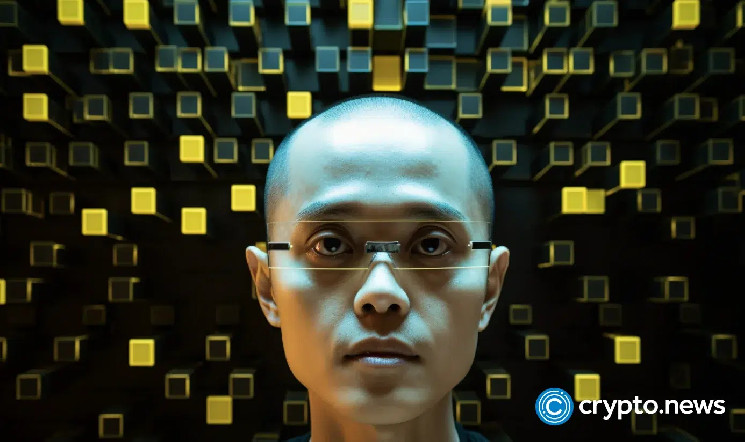Changpeng Zhao’s Perspective on AI Chatbots and Their Limitations
Changpeng Zhao (CZ), the influential figure in the cryptocurrency world, recently expressed his reservations about the current state of AI chatbots. Despite his acknowledged interest in exploring the potential of artificial intelligence within blockchain technology, CZ criticized the existing chatbots for their perceived laziness. He argued that these AI tools often fall short of his expectations, primarily because they tend to present information he already knows rather than enlightening him with novel insights. CZ highlighted the inherent challenge users face when interacting with these bots: the difficulty of knowing what questions to ask when the scope of their own knowledge is limited. He envisioned a more proactive AI that anticipates a user’s informational needs and provides relevant information without explicit prompting.
CZ’s critique resonated with many users who shared their own experiences with AI chatbots. The prevailing sentiment echoed the idea that AI, in its current form, is heavily reliant on human guidance for optimal performance. One user emphasized the importance of combining AI analysis with human expertise and market sentiment to arrive at sound trading decisions. Another user pointed out that while chatbots can be instructed to explore unknown areas, they still require specific prompts from the user, essentially shifting the burden of inquiry back to the individual. While CZ did not specify which chatbot prompted his criticism, numerous users offered suggestions for alternative AI projects.
CZ’s Vision for AI Integration in Blockchain Technology
CZ’s disillusionment with current AI chatbots does not diminish his broader enthusiasm for AI’s potential, especially within the blockchain space. Following his release from prison in September 2023, he has consistently advocated for exploring AI’s applications in the crypto realm. One area of particular interest for CZ is the use of AI-powered tagging on the blockchain. He believes this technology could significantly streamline the crypto payment process by automating the identification and categorization of transactions. Furthermore, AI’s objectivity could eliminate the biases often associated with human-operated systems, promoting fairer and more efficient operations.
CZ envisions a globally distributed workforce contributing to this AI-powered tagging system, receiving micropayments in cryptocurrency for their efforts. This decentralized approach would not only reduce costs but also mitigate geographical biases often present in traditional labor markets. However, CZ acknowledges that realizing this vision requires the development of more sophisticated AI tools and infrastructure. His early engagement with OpenAI CEO Sam Altman further underscores his commitment to driving AI innovation within the crypto sphere. Both figures share a conviction that AI holds the key to unlocking significant advancements in technology and human knowledge, particularly within the context of blockchain technology.
The Nascent Stage of AI Integration in Cryptocurrency
The integration of AI into the cryptocurrency ecosystem is still in its early stages. An analysis conducted by Syncracy Capital in December 2024 revealed that AI-integrated crypto projects constituted a mere 1% of the total crypto market capitalization. Despite this relatively small footprint, the firm anticipates a substantial tenfold increase in the near future as more AI platforms emerge and gain traction. This projected growth reflects the growing recognition of AI’s potential to revolutionize various aspects of the crypto industry.
CZ’s interest in AI-powered tools and his vision for their integration into blockchain technology highlight the transformative potential of this convergence. While acknowledging the current limitations of AI chatbots, he remains optimistic about the future of AI in crypto. His focus on on-chain AI tagging for enhanced payment processing and bias reduction exemplifies the practical applications of this technology. As the development of AI tools continues to accelerate, its influence on the crypto landscape is expected to grow exponentially, potentially reshaping the industry in profound ways.
The Importance of Human Guidance in AI Development
The discussion surrounding CZ’s critique underscores a crucial aspect of AI development: the essential role of human guidance. While AI systems can process vast amounts of data and perform complex computations, they still require human input to define objectives, refine algorithms, and interpret results. The limitations of current AI chatbots, as highlighted by CZ, serve as a reminder that AI is not a replacement for human intelligence but rather a powerful tool that can augment human capabilities. The most effective AI systems are those that seamlessly integrate human expertise and contextual understanding with the computational power of machines.
The emphasis on combining AI analysis with human experience and market sentiment in trading decisions reflects this principle. AI algorithms can identify patterns and trends in market data, but human traders possess the nuanced understanding of market dynamics, investor psychology, and external factors that influence asset prices. By integrating these two perspectives, traders can leverage the strengths of both AI and human intelligence to make more informed decisions.
The Future of AI in Cryptocurrency and Beyond
The ongoing discussions and explorations in the realm of AI and cryptocurrency point to a future where these two technologies become increasingly intertwined. From enhancing payment processing and reducing bias to enabling more sophisticated trading strategies and decentralized governance models, AI has the potential to revolutionize the way we interact with digital assets. The nascent stage of AI integration in the crypto market suggests that we are only scratching the surface of its possibilities.
Beyond the crypto sphere, the broader implications of AI development are vast and far-reaching. From healthcare and education to transportation and manufacturing, AI is poised to transform industries and reshape our daily lives. The challenges and limitations of current AI systems, as highlighted by CZ’s critique, serve as valuable lessons for developers and researchers. By focusing on human-centered AI design and fostering collaboration between humans and machines, we can unlock the full potential of this transformative technology and create a future where AI empowers individuals and societies.















